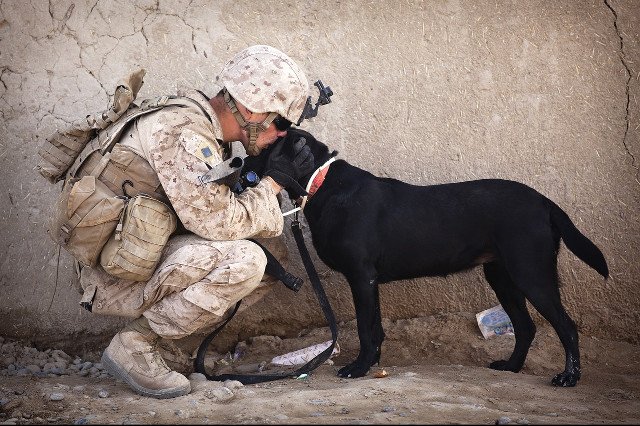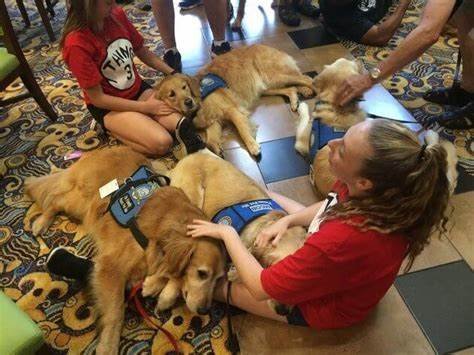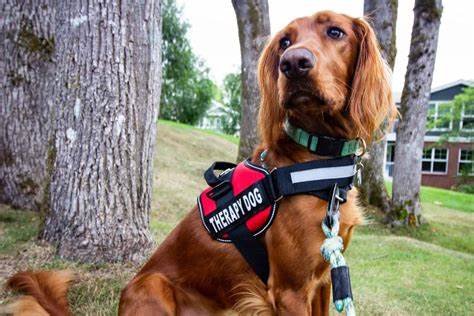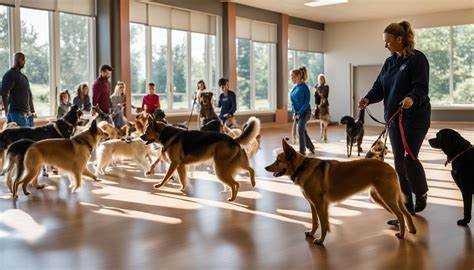Therapy Dogs for Veterans: A Lifeline of Support
Therapy dogs offer invaluable support to veterans, particularly those dealing with the psychological and emotional aftermath of military service. Post-traumatic stress disorder (PTSD), anxiety, and depression are common among veterans, and therapy dogs provide a unique form of assistance. These dogs help reduce stress, promote emotional healing, and foster a sense of purpose and connection. Through companionship and unconditional love, therapy dogs can improve overall well-being, helping veterans navigate the challenges they face in civilian life.
The Role of Therapy Dogs in Mental Health
For veterans with PTSD, anxiety, and depression, therapy dogs act as a stabilizing force. The bond between a veteran and their therapy dog can help to reduce hypervigilance, a common symptom of PTSD, by providing a calming presence. The routine of taking care of a dog also promotes emotional stability and can significantly improve mood and emotional resilience. Studies have shown that interacting with therapy dogs can lower cortisol levels, reduce stress, and even improve sleep quality.
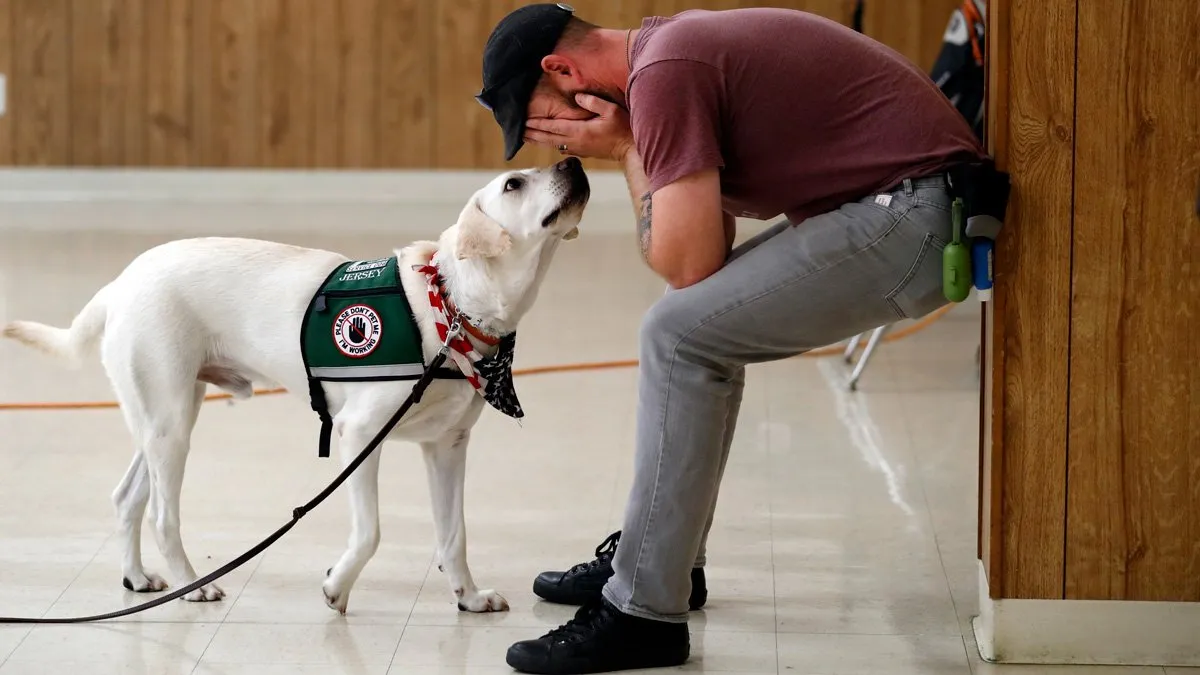
Building Trust and Reducing Isolation
Many veterans struggle with feelings of isolation and difficulty reintegrating into civilian life. Therapy dogs help combat this by offering unconditional support and fostering trust. The consistent companionship of a dog allows veterans to feel connected, reducing the loneliness that often accompanies their mental health challenges. Furthermore, therapy dogs encourage socialization, providing a reason for veterans to engage with others, which can improve their social skills and create new support networks.
Benefits of Service Dogs for PTSD
Veterans with PTSD experience heightened anxiety and flashbacks that can be triggered by everyday situations. A therapy dog can help manage these symptoms by offering a physical presence during stressful moments. Dogs are trained to sense changes in their handler’s behavior, offering support by nudging, licking, or even lying beside them during moments of distress. This interaction provides comfort and security, helping to reduce the emotional intensity of PTSD-related episodes.
Therapy Dogs as a Source of Comfort and Security
For many veterans, therapy dogs also act as physical and emotional security blankets. The physical contact with a dog can trigger the release of oxytocin, a hormone that fosters feelings of relaxation and calm. Whether veterans are in public spaces or at home, the presence of a therapy dog allows them to feel safer and more in control of their environment. This can be particularly beneficial for those who experience heightened anxiety when leaving their homes or navigating crowded places.
Training and Certification of Therapy Dogs
Not all dogs are suited to become therapy dogs, and training is essential to ensure they can handle the unique needs of veterans. Therapy dogs typically undergo specialized training that equips them with the skills to assist individuals with PTSD and other mental health issues. This training focuses on obedience, sensitivity to the handler’s needs, and providing physical and emotional comfort. Many organizations provide therapy dog certification programs, ensuring that the dogs are well-prepared to meet the demands of their handlers.
The Lifelong Bond Between Veterans and Therapy Dogs
The relationship between a veteran and their therapy dog goes beyond mere companionship; it is a therapeutic partnership. The unconditional love and loyalty of a therapy dog help veterans feel supported in their journey toward healing. Many veterans report that their therapy dog has become a lifeline, helping them to navigate daily life and cope with challenges they would otherwise find overwhelming. This bond creates a sense of purpose and belonging, which is vital for veterans who may have lost a sense of direction after their service.
Conclusion
Therapy dogs provide veterans with much more than emotional support; they offer a lifeline to recovery. These dogs help veterans manage PTSD, anxiety, and depression, fostering emotional stability and improving quality of life. With their ability to build trust, reduce isolation, and provide comfort, therapy dogs are indispensable companions for many veterans seeking to heal and reintegrate into civilian life.
